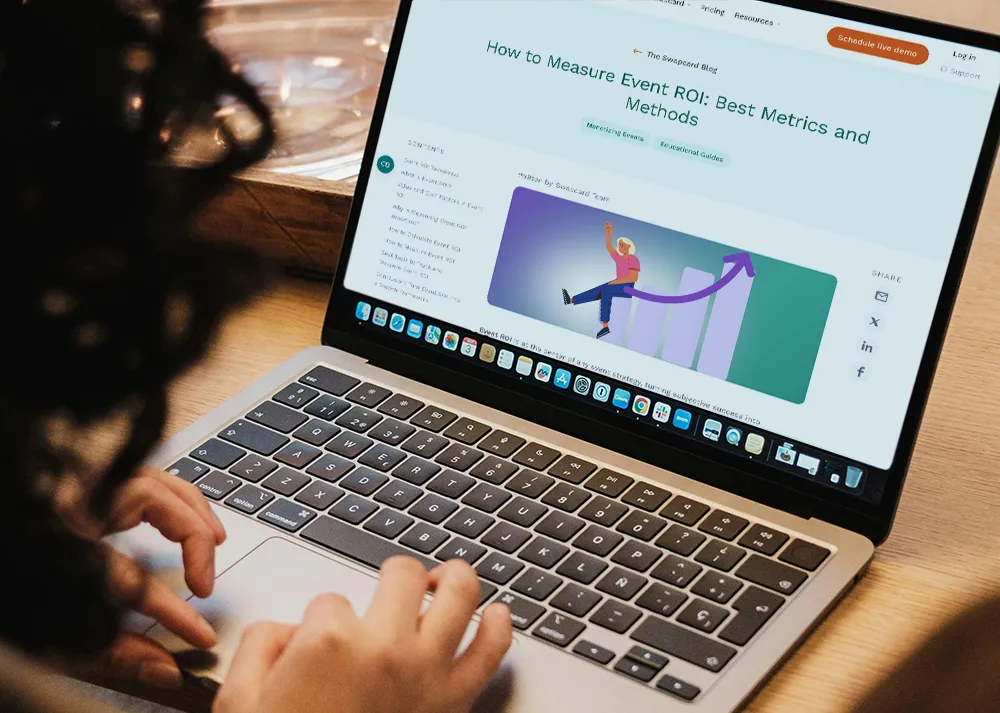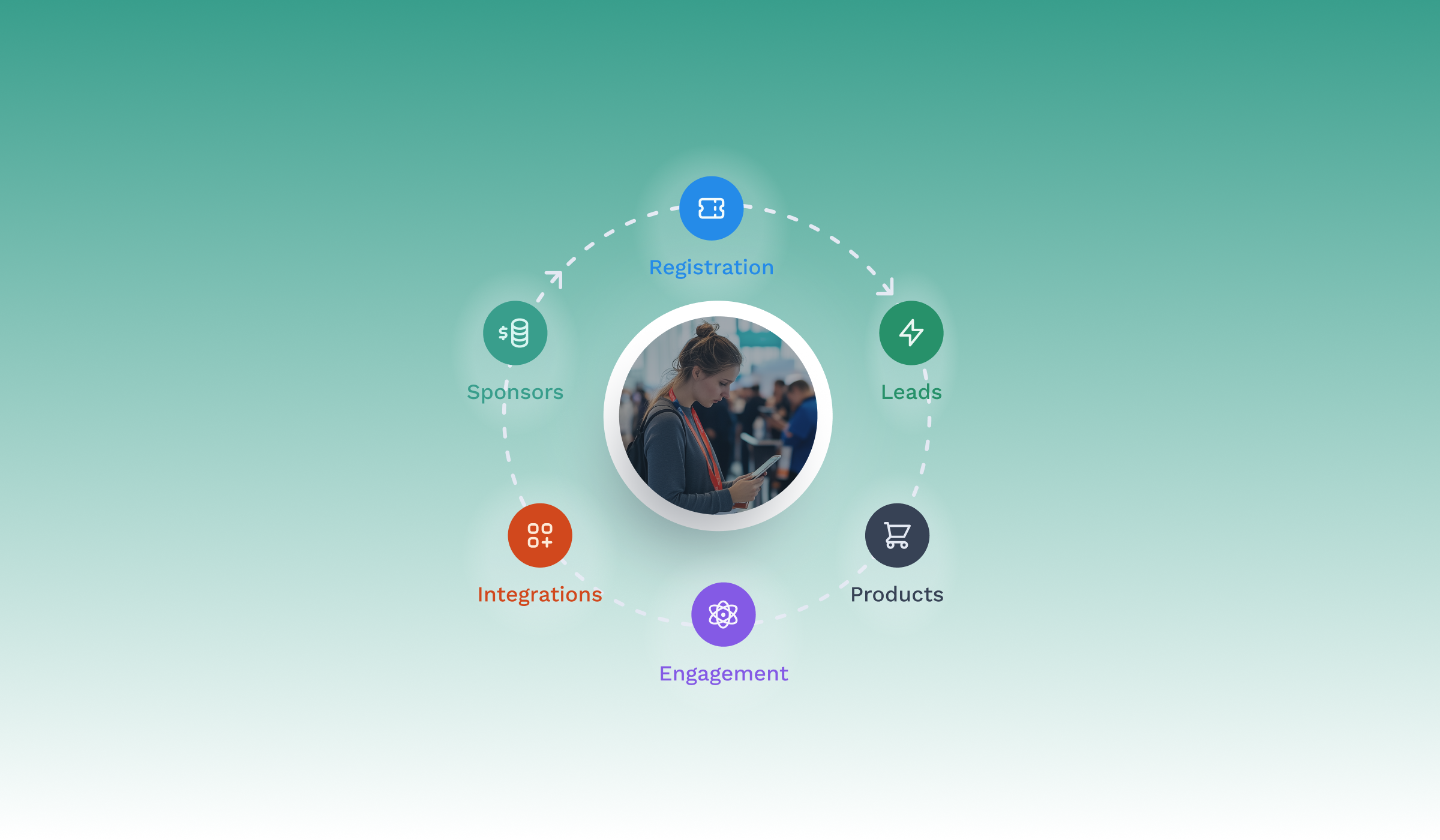Artificial intelligence is transforming the events industry by helping create standout, memorable experiences. According to the Skift Meetings Megatrends 2025 report, AI tools have unlocked endless possibilities for event planners through “personalized experiences, enhanced networking opportunities, and improved analytics that create the ability to improve event marketing efforts.”
With growing pressure to deliver more innovative and engaging events, AI offers planners a powerful edge. A report by Market.us forecasts that the global AI in Event Management market will grow from USD 1.8 billion in 2023 to around USD 14.2 billion by 2033, with a compound annual growth rate (CAGR) of 22.9% from 2024 to 2033.
From saving time to streamlining logistics, AI is quickly becoming an essential tool for modern event professionals. Wondering how to get started? Keep reading to discover how AI can elevate your event strategy.
Must-Have AI Assistant Tools for Modern Event Planners
ChatGPT & Claude
What is it?
These AI tools for event planners are actually on-demand content creators instead of hiring extra copywriters. ChatGPT and Claude generate text, answer questions, and solve problems. They allow you to quickly create descriptions, session outlines, speaker introductions, and marketing copy in minutes.
What can you use it for?
Seasoned event planners are leveraging AI tools to streamline communication and elevate creativity. These tools assist in crafting tailored email templates for diverse stakeholder groups and generating inspired thematic concepts. They empower support staff to address logistical challenges and deliver highly personalized attendee messaging efficiently. From scripting compelling announcements to building detailed agendas and targeted outreach, AI assistants have become indispensable for managing high-level event execution.
Perplexity
What is it?
Perplexity is an AI-powered search engine that delivers intelligent, concise summaries, saving planners valuable time otherwise spent sifting through countless websites. It's built-in citation feature lets you quickly verify information, making it a reliable AI tool when accuracy and credibility are paramount for client or stakeholder presentations.
What can you use it for?
Event planners rely on Perplexity to efficiently source venue specifications, vendor comparisons, and the latest industry trend insights. It’s a powerful asset for crafting persuasive proposals, briefing materials, and professional client presentations. Whether analyzing competitor events or identifying industry benchmarks, Perplexity delivers credible, data-driven answers in a fraction of the time, keeping planners ahead of the curve.
Spark
What is it?
Spark is an AI-powered ideation tool built to turn simple prompts into fully realized concepts. Serving as a creative partner, it helps planning teams overcome creative blocks and spark fresh thinking when momentum slows. From event themes and activation strategies to standout event names, Spark transforms early-stage event planning into a streamlined, inspired process.
What can you use it for?
Spark streamlines the traditional brainstorming process, delivering in seconds what might otherwise take days or weeks. It can generate taglines, décor concepts, and content plans in as little as two seconds, making it an invaluable asset for fast-paced event teams seeking high-impact ideas on demand.
AI Tools for Event Planning, Visuals, and Media
Midjourney
What is it?
Midjourney generates original visuals from just a few keywords, eliminating the need to sift through endless image galleries. Its rapid iteration capabilities empower creative teams to explore multiple visual directions quickly, making it essential for fast-moving teams during concept development and moodboarding.
What can you use it for?
Planners use Midjourney to visualize design styles, set concepts, and create mood boards easily. Requiring no specialized tools or artistic expertise, it enables teams to bring creative visions to life quickly. In fact, Midjourney often surpasses early-stage professional design work, making it a powerful asset in the conceptual phase.
HeyGen
What is it?
HeyGen utilizes AI avatars to deliver personalized messages, creating promotional videos, speaker announcements, and virtual hosts without the need for filming. Event teams use HeyGen to efficiently produce video invitations for VIP attendees, streamlining communication and adding a dynamic, personalized touch to AI-powered event experiences.
What can you use it for?
HeyGen simplifies multilingual content creation without the need to hire multiple presenters. Handling standard video production tasks while ensuring high-quality visual output maintains consistency across all video communications, making messaging seamless and professional across diverse audiences.
ElevenLabs
What is it?
For event content in text form, ElevenLabs generates realistic voice narration, allowing planners to produce professional audio for event announcements and guided tours. It ensures a consistent voice experience across all online platforms, helping to maintain a cohesive tone throughout the event.
What can you use it for?
ElevenLabs eliminates the need for studio time and talent coordination typically required for traditional voice recording sessions. With this AI tool, you can easily adjust scripts at the last minute without the hassle of rescheduling, making it an incredibly efficient tool for dynamic event planning.
AI for Event Planning Operations
Bolt
What is it?
Bolt is an AI-powered document-creation tool that transforms simple instructions into polished, professional materials. Its ready-to-use templates offer a high-quality presentation without the need for design expertise. Ideal for remote teams or those spread across multiple time zones, Bolt streamlines collaboration and ensures consistent, professional output.
What can you use it for?
Event planning tools are essential for managing timelines, staying organized, and collecting team feedback. Bolt serves as a smart workspace platform, streamlining the creation of ideas, checklists, and documents to keep projects on track and ensure efficient collaboration.
Veo 2
What is it?
Veo 2 analyzes video content to extract valuable insights on crowd movement and engagement. Powered by Google DeepMind, it helps optimize space layouts and analyzes patterns of attendee interaction, helping event planners create more efficient and engaging event environments.
What can you use it for?
Veo 2 is a powerful tool for event professionals. It allows them to review past events and pinpoint areas for improvement. The platform can predict potential crowd flow issues before they arise, eliminating the need for manual observation and guesswork around attendee behaviour. Event planners use Veo 2 to generate realistic visuals, animation clips, and motion graphics, enhancing their event planning and execution with data-driven insights.
Manus
What is it?
Manus leverages gesture recognition technology and haptic feedback to create immersive, interactive experiences. Event planners can use Manus to design engaging installations that generate abundant social media content, elevating both attendee interaction and event visibility.
What can you use it for?
Manus transforms traditional static displays into dynamic, interactive elements. Reducing reliance on handwritten notes boosts meeting productivity and simplifies follow-ups. The platform efficiently records, transcribes, and summarizes key discussions, ensuring that essential questions from vendor calls or team meetings are captured and easily accessible.
The of AI for event planning
The Amex Global Forecast reveals that half of all event organizers worldwide plan to incorporate AI tools for event planning by 2025. Increasingly, organizers are turning to AI assistants to provide real-time support and enhance attendee experiences. These AI tools offer instant responses to questions before, during, and after events, easing the burden on planning teams and boosting guest satisfaction.
However, a recent Skift report highlights that AI tools for event planning like ChatGPT can replicate certain aspects of creative thinking, but are not without limitations. These tools occasionally miss the nuances of human expression, which means that while AI can add speed and efficiency to event planning, it cannot fully replace the personal touch that defines exceptional hospitality and live events.
Conclusion
AI in events empowers planners to make more informed decisions, elevate creativity, and streamline execution. These technologies shift planners from administrative roles to strategic experience architects, enhancing both efficiency and innovation. While AI tools for event planners can automate routine tasks, the success of every event still depends on experienced professionals who preserve the personal touch that elevates the attendee experience.
Join 12,000 subscribers and unlock industry secrets.
By submitting this form, you agree to receive periodic emails on insightful content related to events and our product, and in accordance with our Privacy Policy. You can, of course, change your preferences or unsubscribe at any time.






.avif)
.svg)


.svg)
.svg)
.svg)





